CNN Reaches Undisclosed Defamation Settlement for Punitive Damages with Navy Veteran After Jury Awarded Him Additional $5 Million
The rare defamation trial involving a major media company could serve as a deterrent to other outlets.
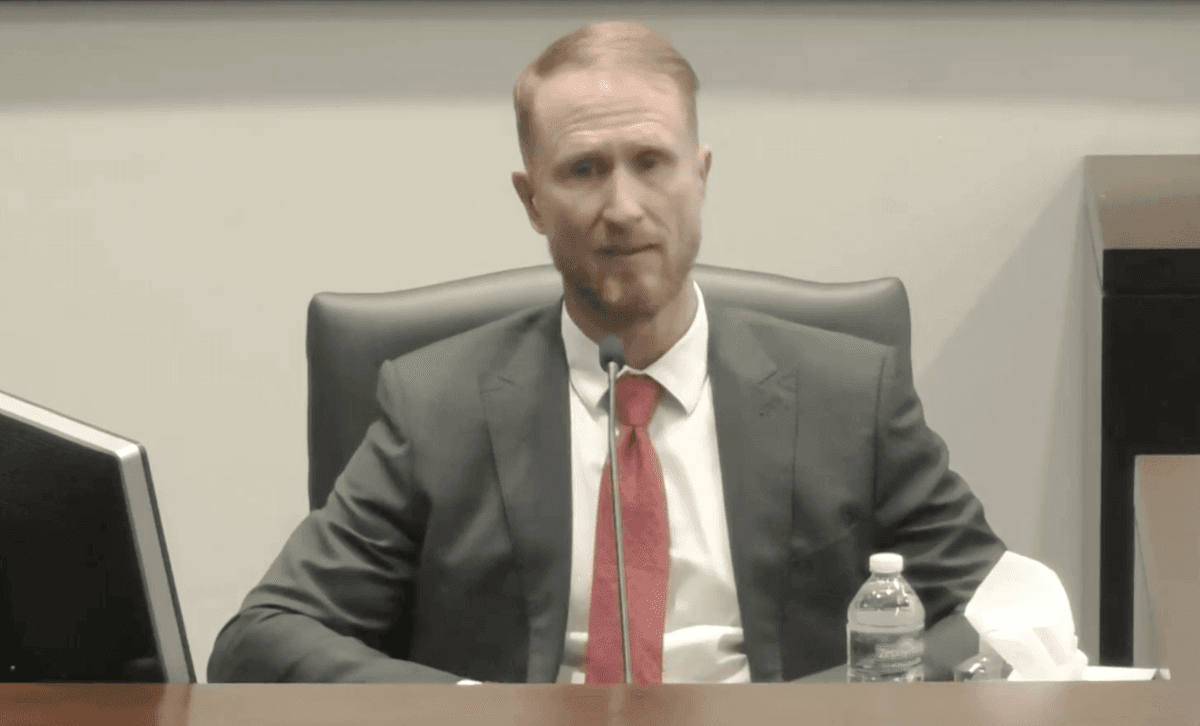
CNN has reached a confidential settlement for punitive damages with Zachary Young, a military veteran who’d sued the news network over its report that he ran a black market operation that preyed on desperate Afghans trying to flee the country in 2021. Earlier on Friday, the jury awarded Mr. Young $4 million for lost earnings and $1 million for personal damages after finding CNN liable for defamation.
The undisclosed punitive damages CNN has agreed to pay may be far larger. The settlement followed testimony to determine how much of a judgement CNN would need to be charged for it to hurt, with witnesses saying the amount should be in the billions of dollars. In 2017, Disney settled with a South Dakota meat processor for $177 million after ABC News defamed as “pink slime” a beef product it sold to schools. The amount was not disclosed until Disney reported it in its earnings months later. In 2023, Fox News settled with Dominion Voting Systems for $787 million over comments made on its air that claimed Dominion cheated in the 2020 election.
In the CNN case, the jury in Pensacola, Florida, returned its verdict on Friday after roughly nine hours of deliberations in the rare defamation trial involving a major media company (most such cases are settled before trial). The jurors awarded Mr. Young $4 million for lost earnings and $1 million for personal damages, such as pain and suffering.
After the verdict was shared, the trial entered the second phase, where jurors were supposed to determine punitive damages for the network. A lawyer for the network, David Axelrod, asked the jurors not to further “punish” his client with punitive damages. He also said the network has faced a “gradual decline” of its revenues.
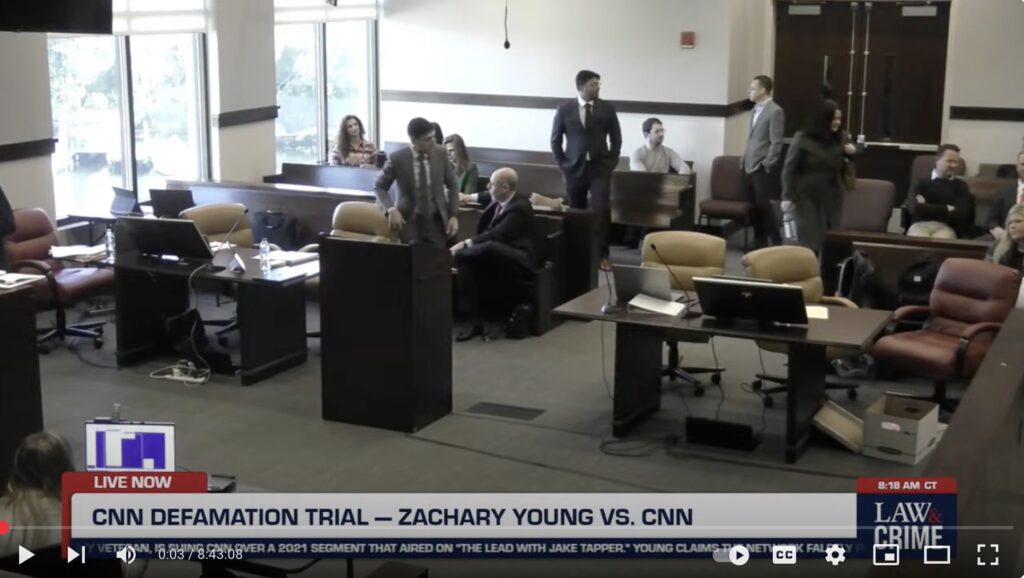
The revenue, however, remains enormous. In 2023, testimony showed, CNN made $1.8 billion in revenue, down from $2.2 billion in 2021. The drop in revenue is linked to the declining ratings of CNN’s most lucrative business by far, its U.S. cable channel, and to the overall decline of the cable television business, which is being slowly eaten away by streaming.
CNN is part of the Warner Brothers Discovery Media company, which while hobbled by debt and mismanagement is capable of paying a giant fee .
A forensic economist, Robert Johnson, said in his testimony on Friday that he used a standard economic analysis to develop an estimate of CNN’s financial situation, and its ability to pay punitive damage. Based on his analysis, he said the network could pay billions of dollars in damages.
While cross examining Mr. Johnson, Mr. Axelrod noted the media industry is facing a “challenging economic environment” and asked if the economist had considered those headwinds in his analysis, which he said he did. Despite what industry experts refer to as “secular decline,” which has led companies like Comcast to spin off their cable assets such as MSNBC, the cable business remains enormously profitable, if increasingly less so.
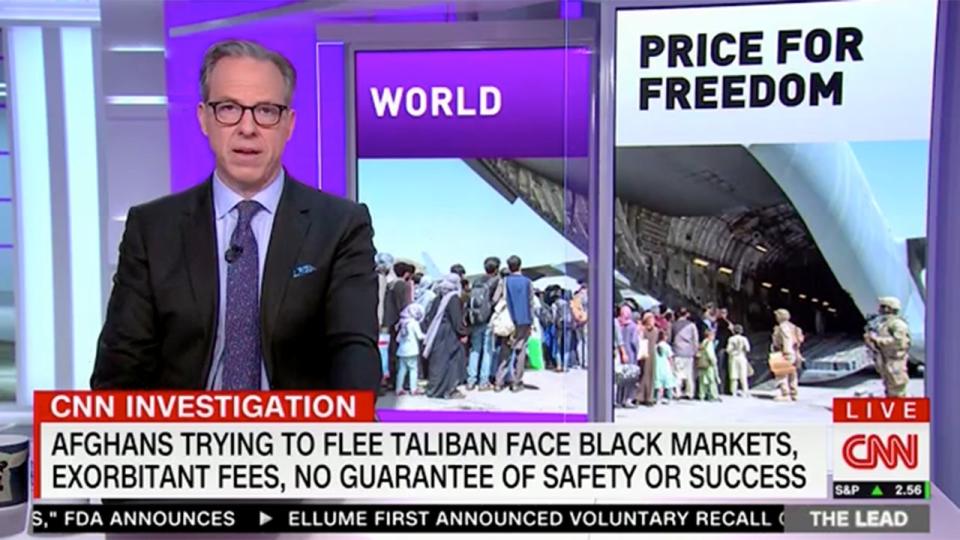
After an extended debate over future testimony, which led the jurors – who were not in the courtroom at the time – to ask if they had been forgotten, the judge in the case announced that the two sides had reached a settlement, but the amount was not disclosed.
At the heart of the defamation case is a news segment that first aired on CNN’s “The Lead With Jake Tapper” in 2021 that focused on efforts by contractors to help people evacuate from Afghanistan during America’s hasty withdrawal and the return of the Taliban. The segment focused on Mr. Young, who claims the network defamed him by accusing him of “preying” on Afghans and charging “exorbitant fees” to evacuate them from the country and operating in a “black market.”
The report only mentioned one contractor — Mr. Young. During the segment, the Navy veteran’s face was shown on a graphic referencing “black markets” and “exorbitant fees.” The graphic also noted his company was asking for $75,000 to transport passengers to Pakistan or $14,500 to transport them to the United Arab Emirates.
In the clip, the CNN reporter said those fees are “well beyond the reach of most Afghans.” Mr. Young told the on-camera reporter who reported the story, Alexander Marquardt, in a text message, that “Afghans trying to leave are expected to have a sponsor pay for them,” and evacuation costs are “highly volatile and based on environmental realities.” At the time, some American corporations with employees in Afghanistan were seeking to relocate them before the Taliban returned to power and punished them for collaboration with the occupation. These companies had the means to pay what it cost contractors like Mr. Young to evacuate their personnel.
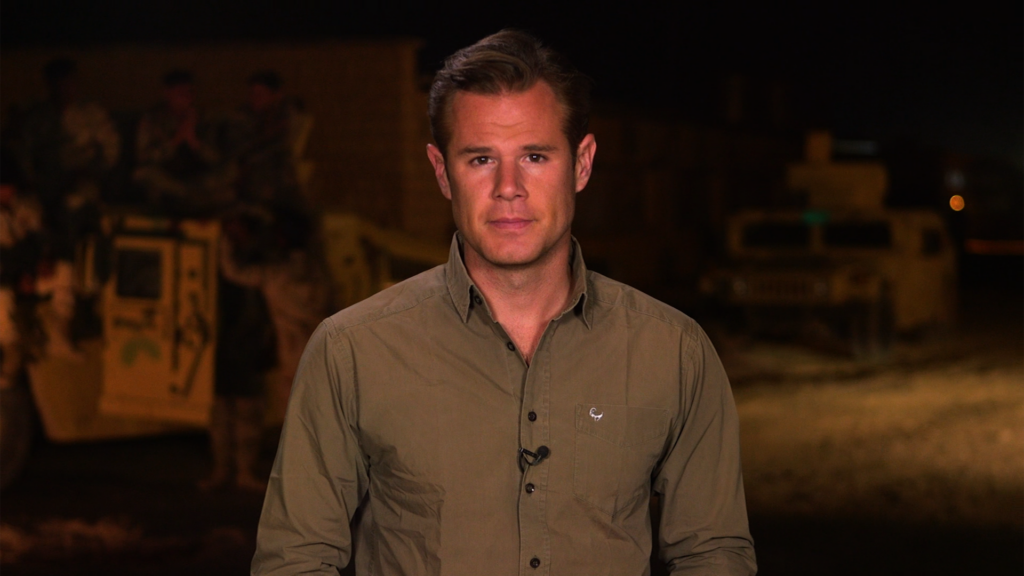
In March 2022, the CNN news personality Pamela Brown, a Kentucky Fried Chicken heiress who’s the daughter of the late beauty queen and television personality Phyllis George, who was substituting for Mr. Tapper on his show, issued an on-air correction and apology for the segment. Mr. Tapper himself never apologized, and Mr. Marquardt, who testified at the trial, refused to apologize to Mr. Young.
Mr. Young said the segment caused him emotional distress and hurt his reputation by implying he was operating on the black market, or “preying” on desperate Afghans who were trying to get out of the country by charging him high fees. He also said his income plunged from $350,000 a year to zero after the segment aired.
During the trial, Mr. Young testified that he was charging large corporations, such as Amazon’s Audible, evacuation fees to help get specific people – such as individuals hunted by the Taliban – out of the country.
He accused CNN “senior reporter” Katie Bo Lillis of reaching out to him under misleading pretenses, saying she wanted to speak to him as part of the network’s reporting on “ongoing efforts to help get at-risk Afghans out of the country” and the “various different models folks are following to get people out.” She did not initially tell him she was preparing a negative report specifically about him.
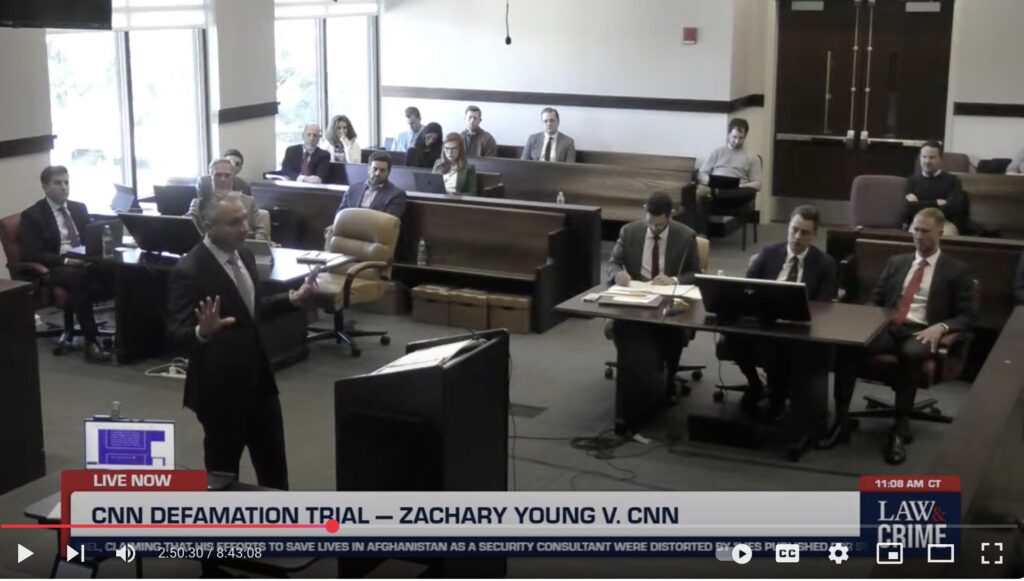
Additionally, one of Mr. Young’s lawyers, Vel Freedman, highlighted an exchange on the encrypted messaging app Signal where Ms. Lillis said the fees charged to help evacuate people from Afghanistan seemed to be “exorbitant” for the average person.
“No Afghan is expected to pay for evac costs, none would ever be able,” Mr. Young told Ms. Lillis. “Rather, we’ve focused on aligning corporate sponsors who have the resources to support those Afghans most in need, the ‘kill list’ variety.”
Mr. Freedman asked, “Could you have been clearer to CNN about who you expected to pay [the evacuation fees]?”
“No,” Mr. Young responded.
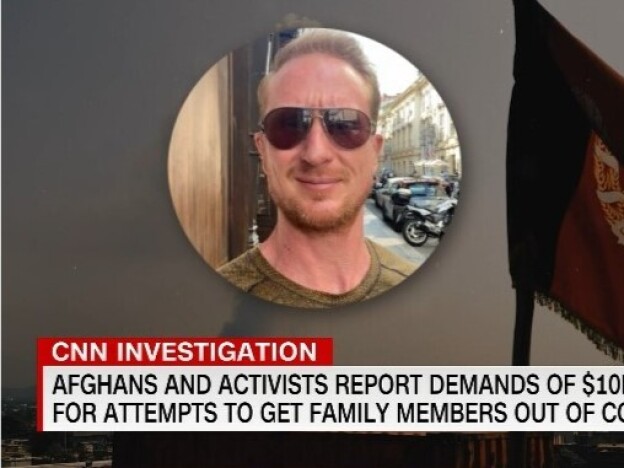
Mr. Freeman asked, “Did she listen?”
“No,” Mr. Young said.
Internal messages from CNN staffers showed that they raised doubts about the story, with some calling it “flawed,” filled with “more holes than Swiss cheese,” and “incomplete.”
Lawyers for CNN insisted that Mr. Young was not the target or the main subject of the segment, and they defended the reporting by calling it tough but fair.
During a deposition in November, Mr. Tapper said he had “no knowledge about CNN’s net worth” or “any knowledge regarding what the Tapper show may or may not generate that may go toward CNN’s net worth.” He also refused to divulge his salary. However, Judge William Henry, who presided over the trial, said he had a “hard time believing” the star anchor. He explained, “I have a feeling that is the basis of what time slot he gets and how much his contract is and everything else with CNN.”
The fact that a defamation case against a media company made it to trial, and that the outlet was found liable for defamation in America is rare, in part due to the high standard required to prove defamation. Many cases are typically dismissed by judges via summary judgment, while other media companies tend to settle.
In this case, Mr. Young had previously insisted he would not settle with CNN.

